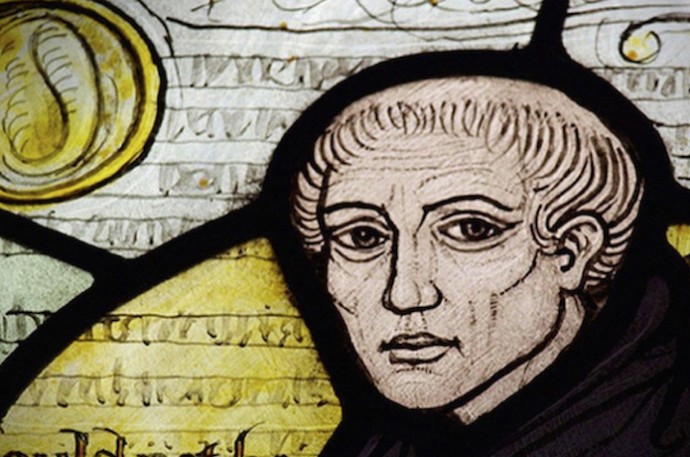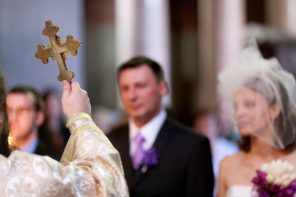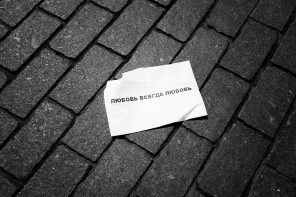Readers of my last post, and readers of English more generally, could be forgiven for thinking that in his essay, “Christian human rights: An introduction,” and in his forthcoming book, Christian Human Rights, the Harvard intellectual historian Samuel Moyn wants to argue that human rights are somehow Christian.
In his essay at The Immanent Frame, he claims that the influence of Catholic intellectuals in the 1940s “tells us about the fortunes of the concept as a whole,” that it was “quite difficult to find non-Christians who enthused about human rights, and more especially their basis in human dignity, in the age,” and that the history of Christian human rights in the 1940s is therefore “a large part of the history of human rights discourse generally.” Perhaps boldest of all, Moyn claims that “[w]ithout Christianity, our commitment to the moral equality of human beings is unlikely to have come about.”
 Such swashbuckling claims make for a startling overturning of conventional wisdom about the secular and multicultural sources of human rights (and, let’s be honest, for lots of logic-chopping on blogs by more timid intellects such as my own)—the more startling the less you understand them. In the context of contemporary debates about the entanglement of religion and human rights, it is all the more important that we do so. Of course, everything depends on the meaning of “human rights” and on the nature of their proposed relation to Christian thought (you were warned about the logic-chopping).
Such swashbuckling claims make for a startling overturning of conventional wisdom about the secular and multicultural sources of human rights (and, let’s be honest, for lots of logic-chopping on blogs by more timid intellects such as my own)—the more startling the less you understand them. In the context of contemporary debates about the entanglement of religion and human rights, it is all the more important that we do so. Of course, everything depends on the meaning of “human rights” and on the nature of their proposed relation to Christian thought (you were warned about the logic-chopping).
Moyn’s thesis would be most startling if it were asserting a moral or philosophical relation, the claim that the Christian notion of the inherent dignity of the person provides the best or only adequate moral justification for universal human rights. But, as far as I can tell, Moyn is not actually staking this claim, nor would the histories he uncovers underwrite it. Even if it were historically accurate to say that Catholic intellectuals such as Emmanuel Mounier and Jacques Maritain were responsible for formulating the modern notion of human rights, it would not follow that their preferred spiritual grounding of human rights is sound, let alone that human rights can have no secular grounding.
Although at some moments it may sound moral or philosophical, Moyn’s thesis surely is asserting a causal-historical relation. Here we need clarity on the meaning of “human rights.” If we are referring to a global movement in popular culture, politics, and civil society, then by Moyn’s own account, human rights emerges much later, advanced by activists on the secular left. As the historian John Witte, Jr., observes:
It’s not clear to me how the “breakthrough” of human rights into a global movement after the 1970s is related to this mid-century story about Christianity and human rights. The upshot of Moyn’s story is that in the later twentieth century “secular liberalism” eclipsed “Christian conservatism,” allowing the human rights paradigm to flourish more universally.
A more modest causal-historical thesis is that 1940s Catholic discourse, while not sparking a mass human rights movement, was a significant contributing cause of the embrace of dignity-and-rights language by powerful elites and its inclusion in European constitutions, the UN Charter, and the Universal Declaration. Granted, support for this historical claim would still not vindicate Moyn’s counterfactual claim that absent Christianity, our commitment to moral equality “is unlikely to have come about.” But in his defense, I don’t know that anything could.
In another critical commentary on Moyn, the philosopher Nicholas Wolterstorff cuts to a more fundamental ambiguity in “human rights.” He distinguishes between the concept of a human right as such and particular instances of that concept. The concept of a human right is the concept of a universal right, an entitlement that is held by every human being simply in virtue of being human. Instances are a subset of these rights—for instance, the right to marry or the right to a nationality—that are labeled “human rights” (a term that rose to prominence in English only in the postwar era) and recognized in international law.
Accordingly, there are “two stories to be told about the recognition of human rights,” Wolterstorff notes.
One is the story of the introduction and employment of the concept of rights and the inclusion of what we would now call “human rights” among the rights identified. The other is the story of the singling out of that special subset of rights that we now call “human rights” and conceptualizing them as such.
The latter story, he concedes, could be relatively recent and could prominently feature mid-century Catholic personalist intellectuals. But this would not preclude the possibility of a much longer and much different story of universal rights, one that goes back at least to the canon lawyers of the twelfth century.
Moyn might respond that the older rights traditions are sufficiently different from the Catholic personalist concept that we are justified in calling it a new concept. The success of this response turns on whether the Catholic personalist concept was in fact the concept that came to prevail among mid-century elites.
For there were a number of concepts of rights and personal dignity circulating during this period and, contra Moyn, plenty of non-Christians enthusing about them along with Christians enthusing for non-Christian reasons. My next post will sketch some of their stories.





